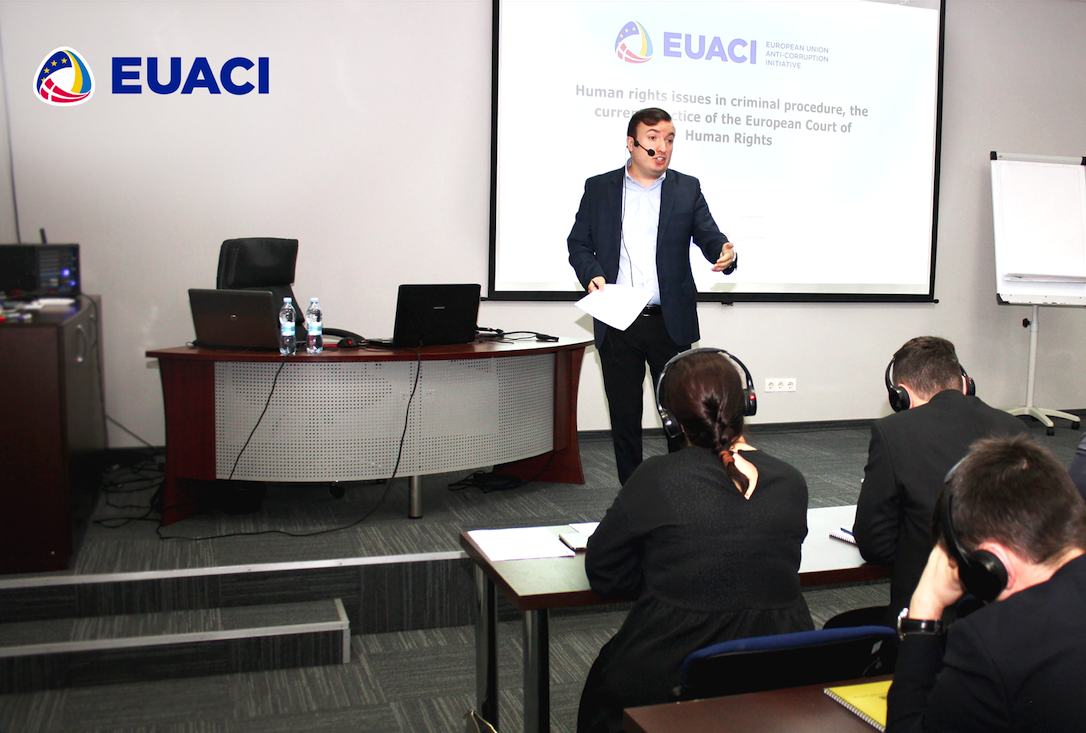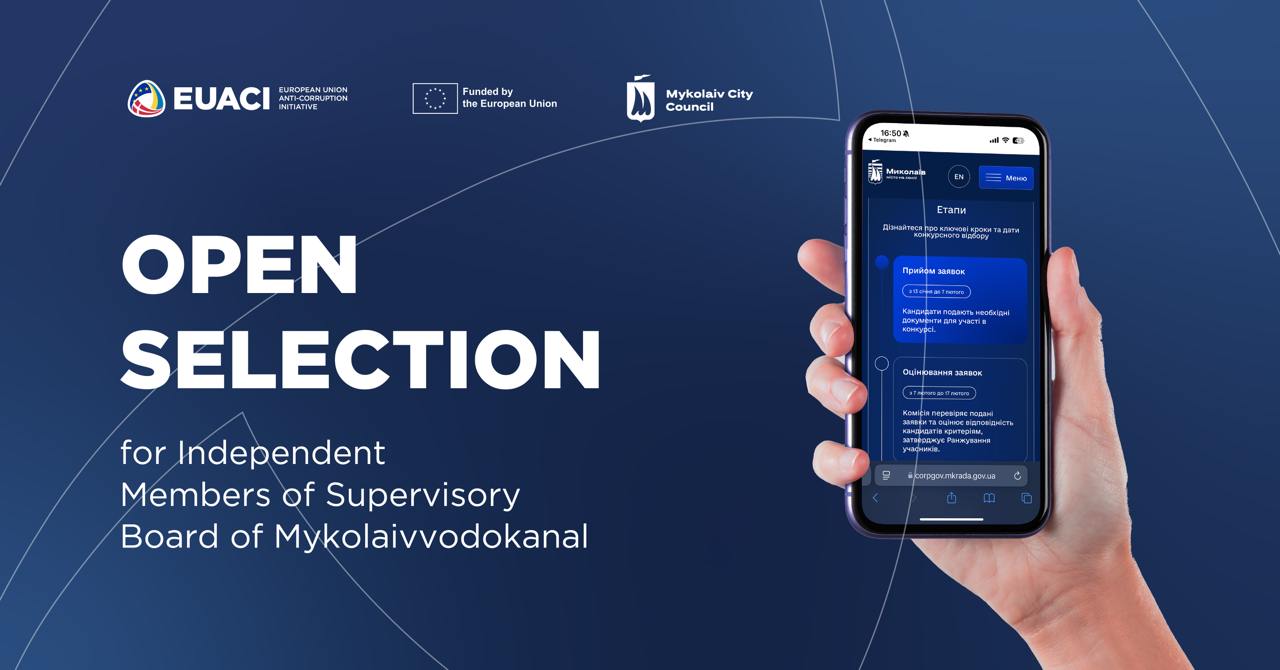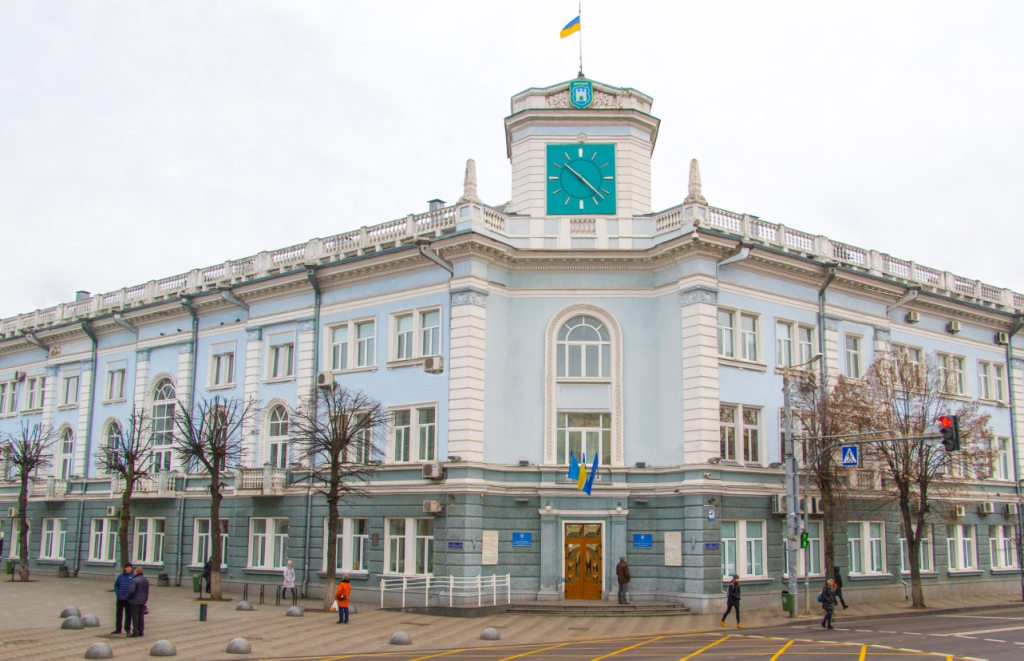
The EUACI conducted training on human rights for SAPO, NABU and HACC
According to the request from EUACI beneficiaries, one of the most relevant topics relevant for everyday work for SAPO prosecutors, NABU detectives, and HACC judges is the topic on human rights compliance. In order to build the professional capacity of prosecutors, detectives, and judges, EUACI organized and conducted special training, “Human rights issues in criminal procedure, the current practice of the European Court of Human Rights (ECHR)” which took place in Kyiv.
EUACI invited experienced trainer, Levan Meskhoradze, State Representative to the European Court of Human Rights at the Ministry of Justice of Georgia. He has practical experience of use of the provisions of the Convention of Human Rights while working in the European Court of Human Rights defending his country Georgia.
During the training, participants increased their knowledge and awareness of key practical aspects of utilization of the European Convention on Human Rights.
“It’s a very thin line in relation to human rights. But there are a lot of nuances in its practical application and it’s very important for Ukrainian anti-corruption bodies to know all these nuances” – Elena Konceviciute, EUACI Senior Anti-Corruption Adviser said during the introduction.
“This training is to upgrade knowledge and to give the examples of some recent cases of the European Court of Human Rights on the investigations of various cases and especially those under the jurisdiction of Ukrainian anti-corruption bodies. And the second is the info-materials which will be useful for those who could use it in everyday work”, – mentioned the trainer.
One of the participants to the training, the NABU detective, has also shared his impressions – “The training has been undoubtedly useful’, said he, “as we increasingly strive to introduce the practices of the European Court of Human Rights. As a matter of fact, we are concerned not only about referring a case to court, but also about its successful consideration and putting the guilty to justice in accordance with the law. And we also wish all authorities to confirm that the charges brought were substantiated and lawful. This is why such trainings are of practical importance, especially in such formats, when we do not limit ourselves to theoretical discussions but learn from real cases how these or that norms have been put into practice. During the training we considered practical cases, which we can use not only as examples to follow but as certain legal norms, as these decisions are the opinions of the European Court of Human Rights and are mandatory for use by Ukrainian courts.”



